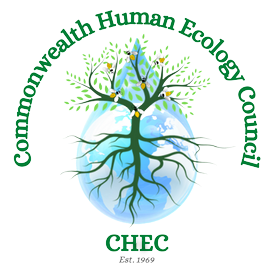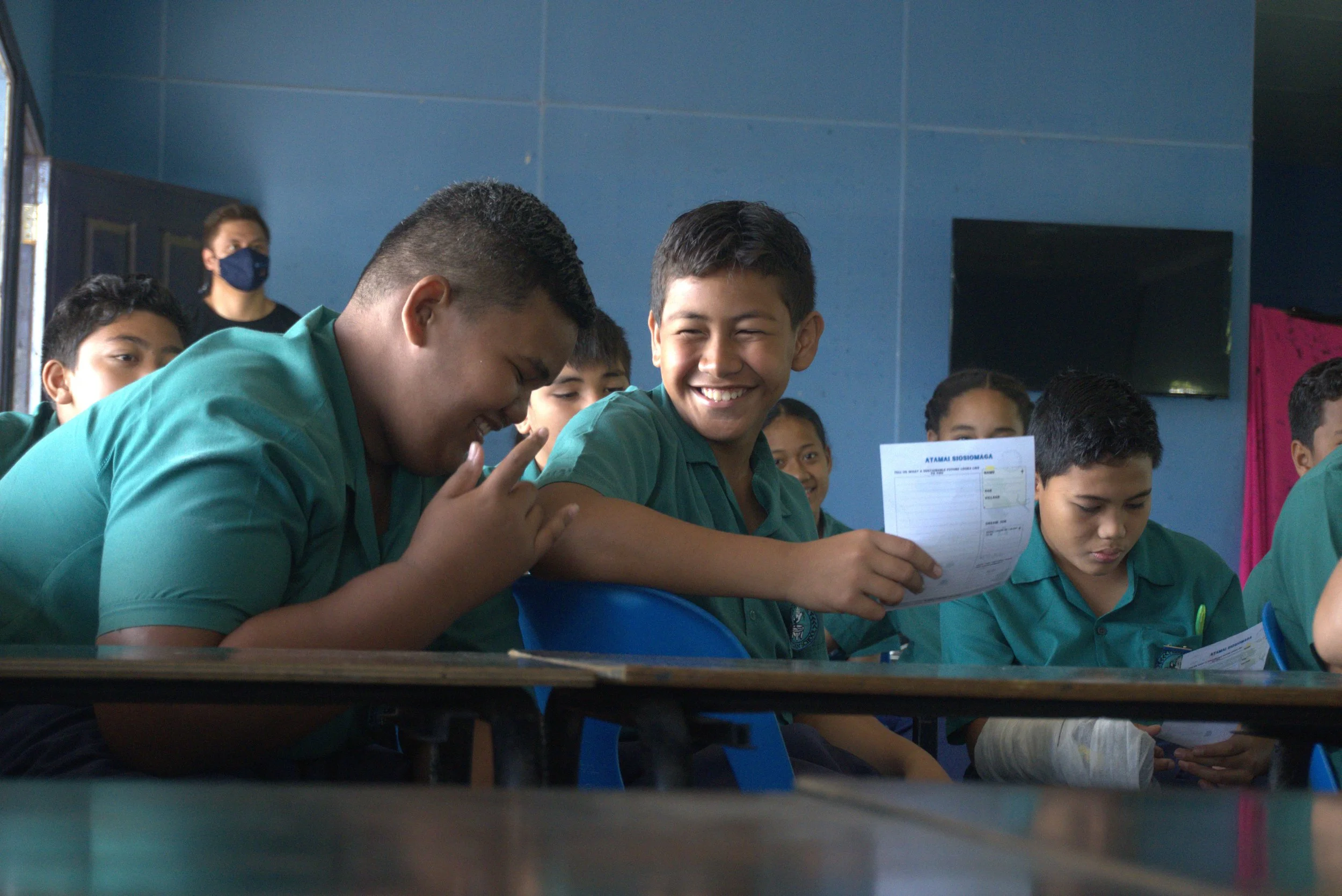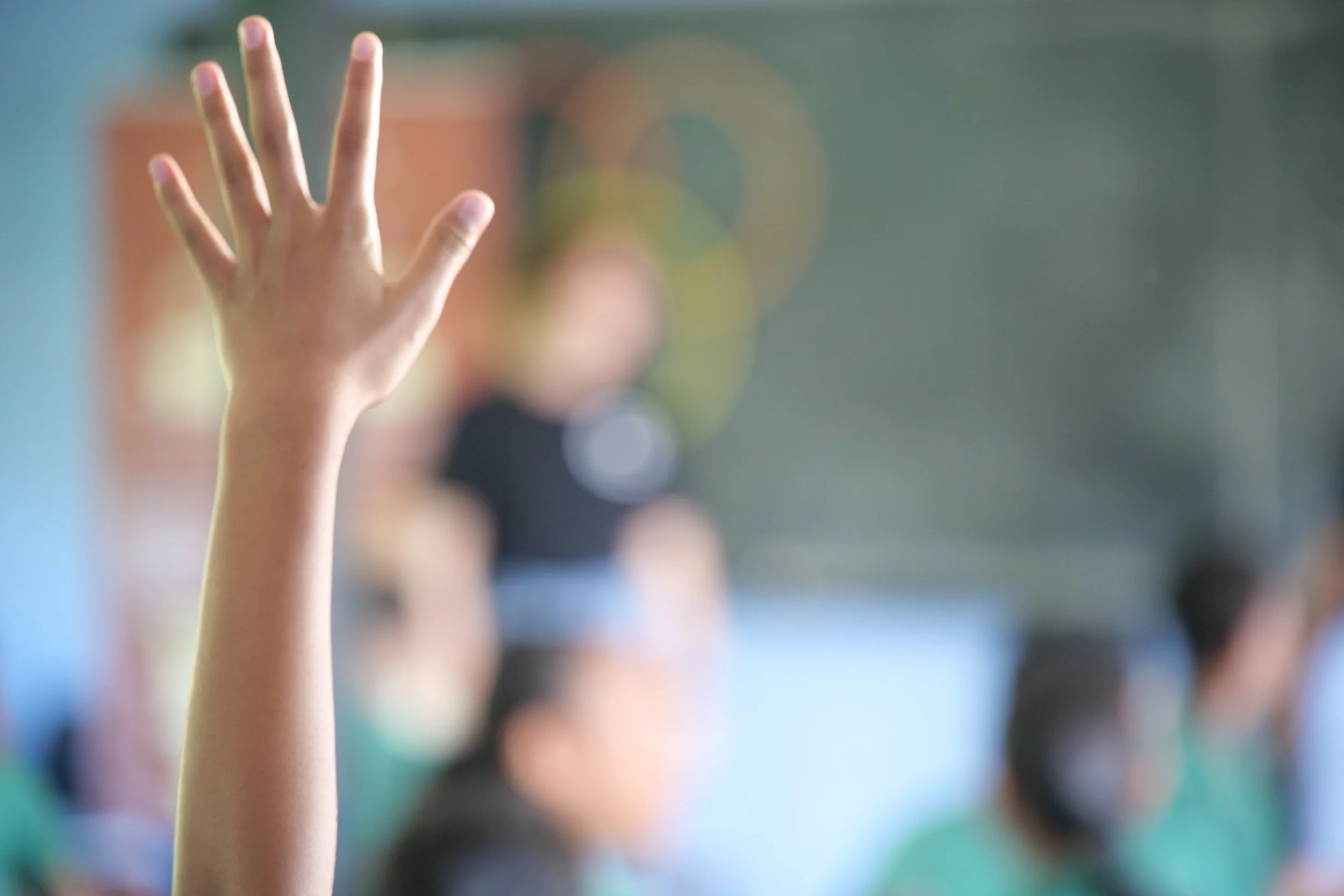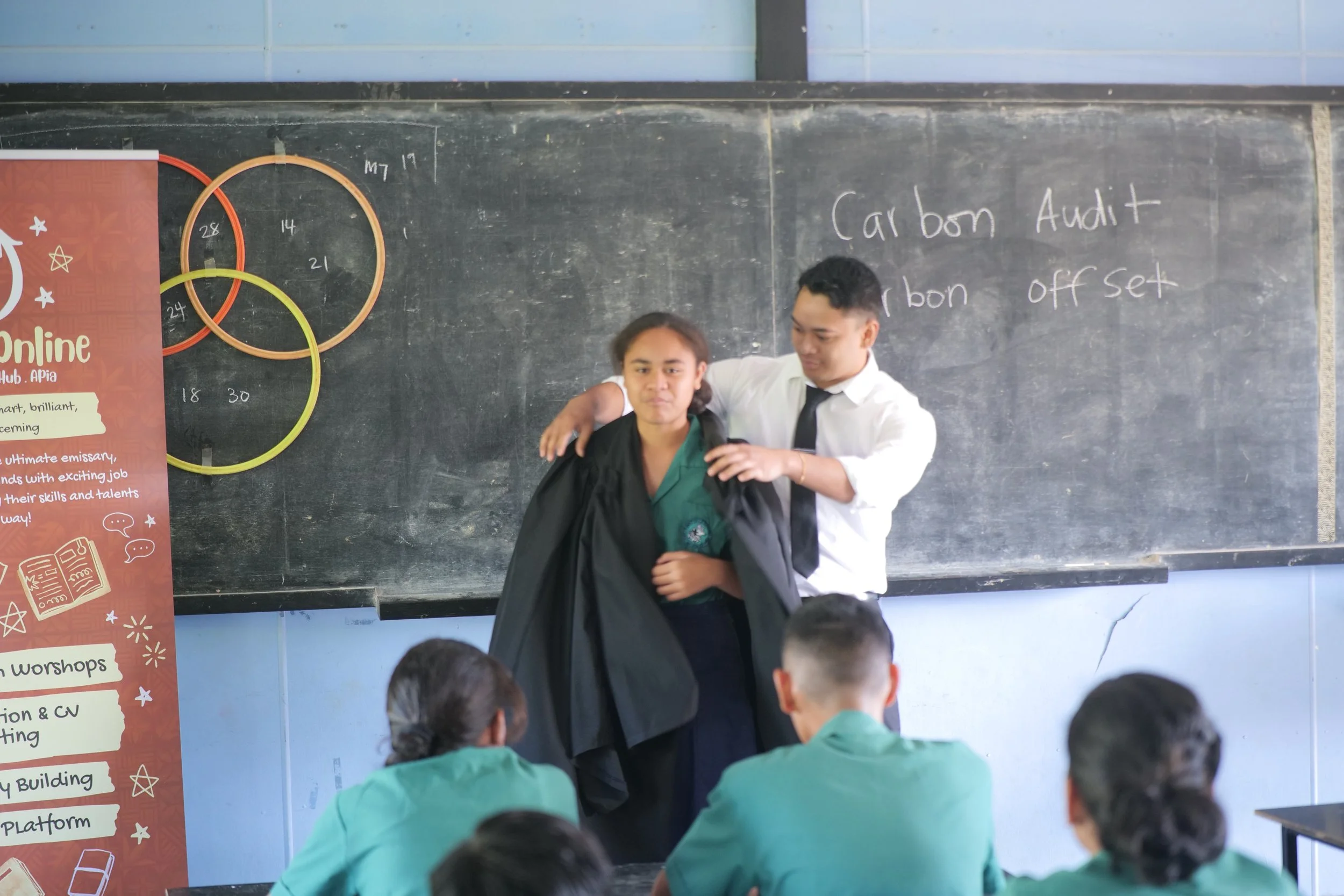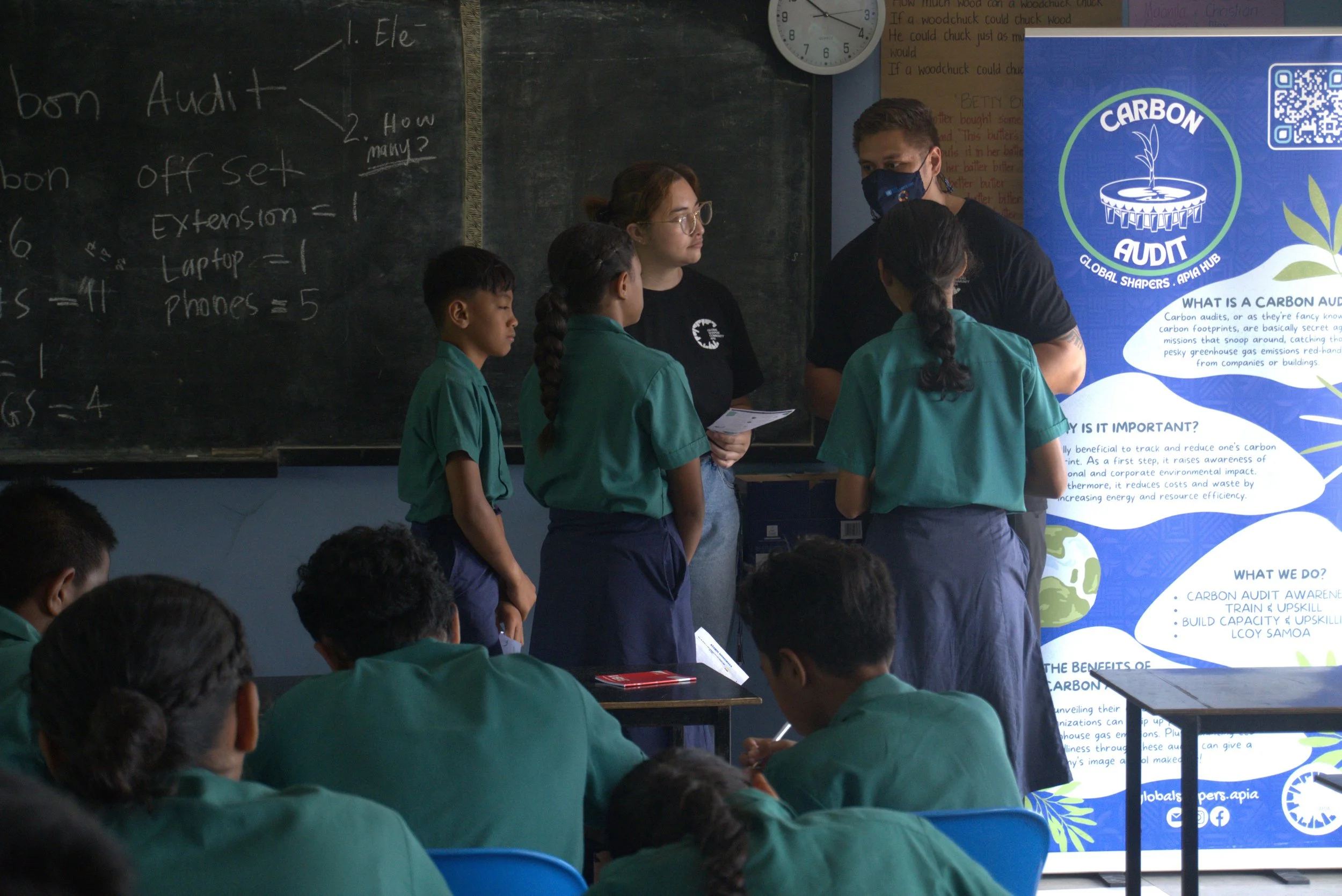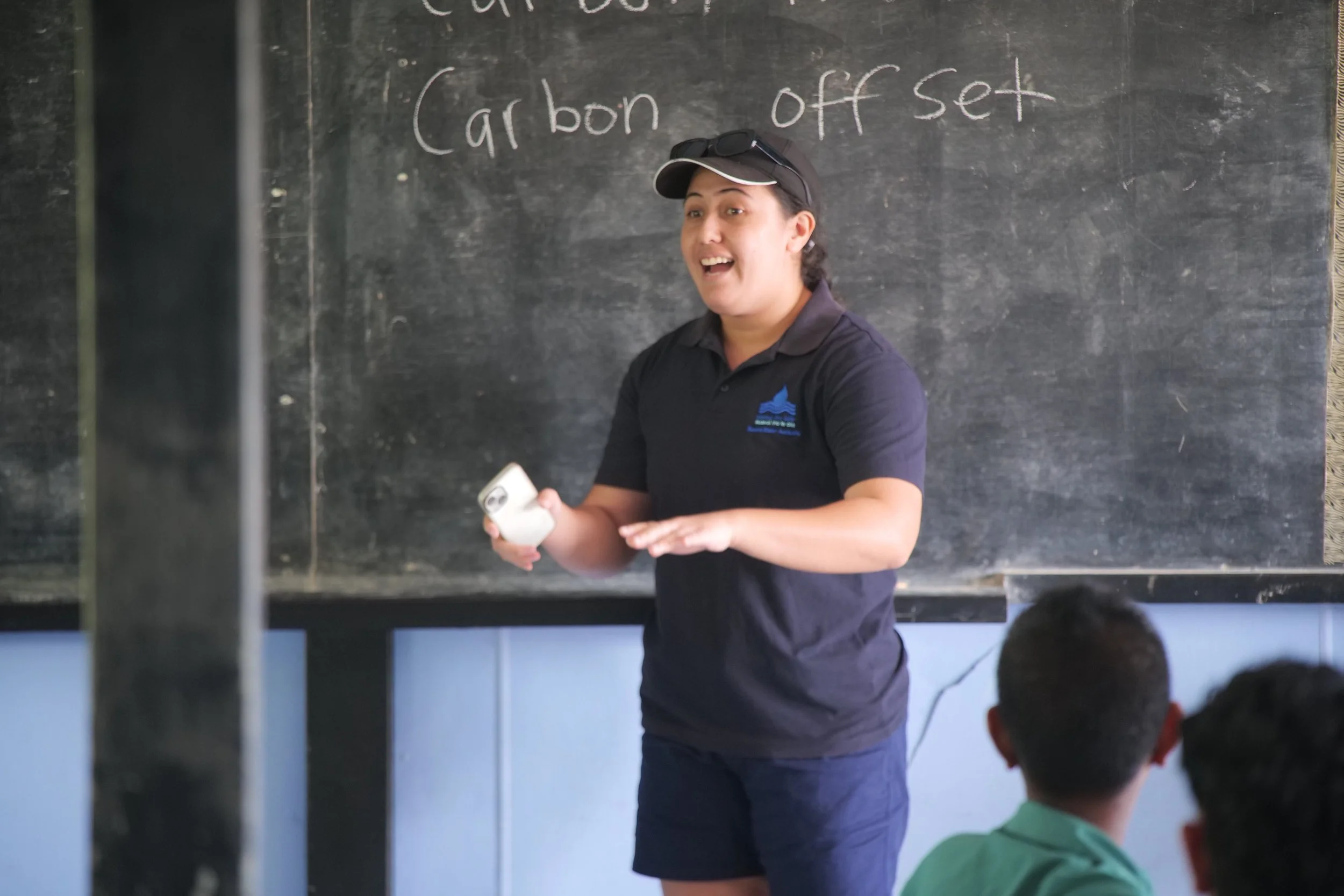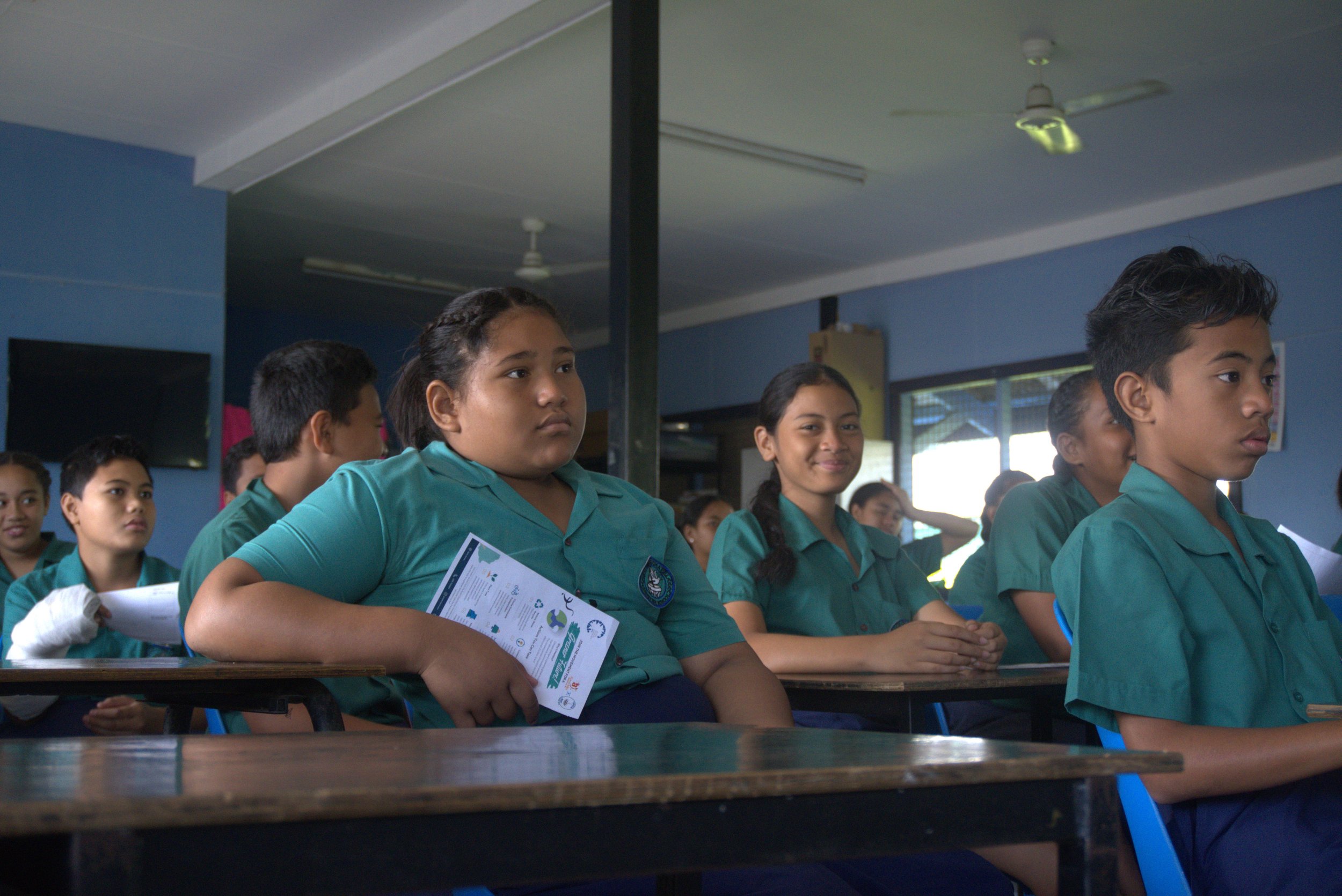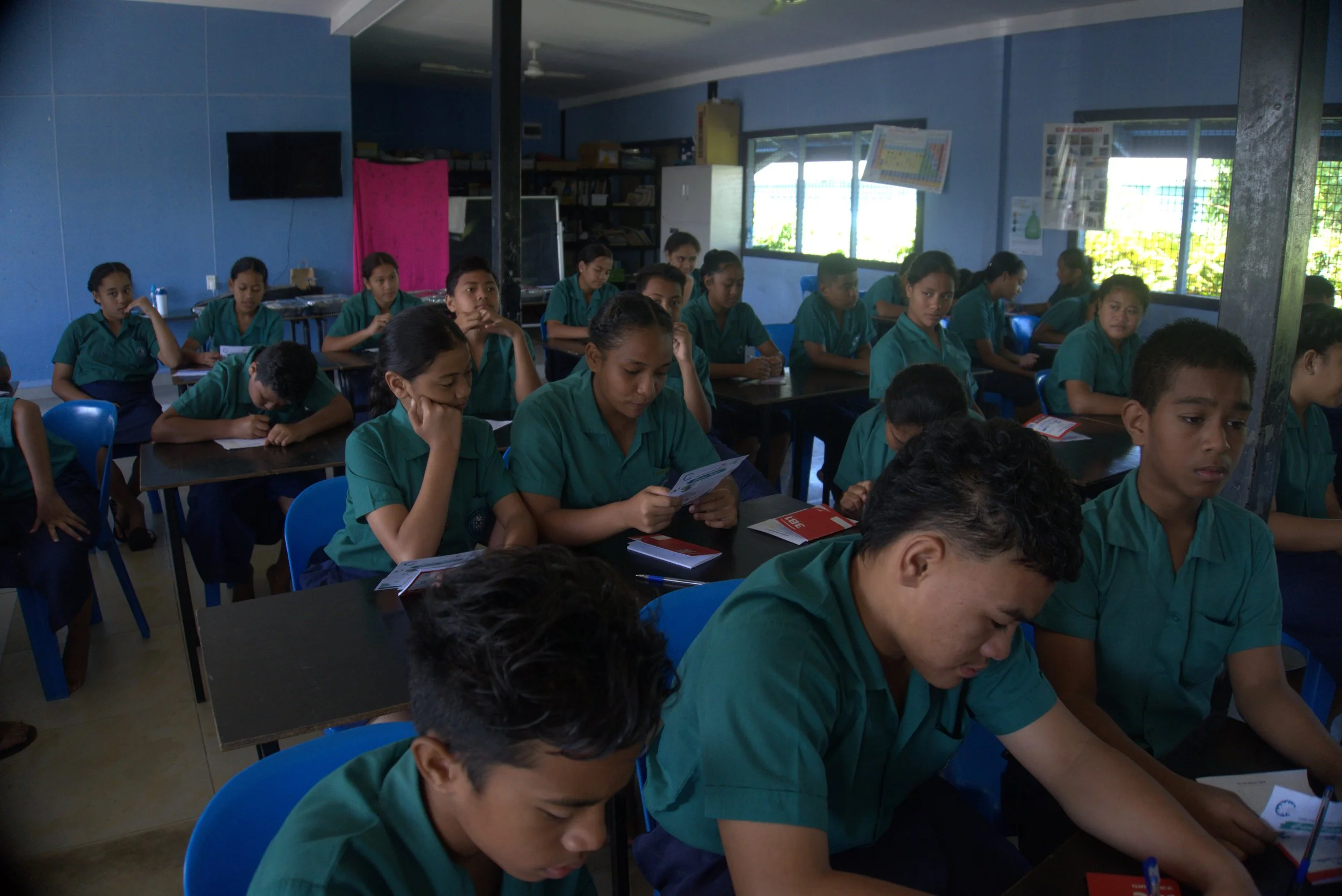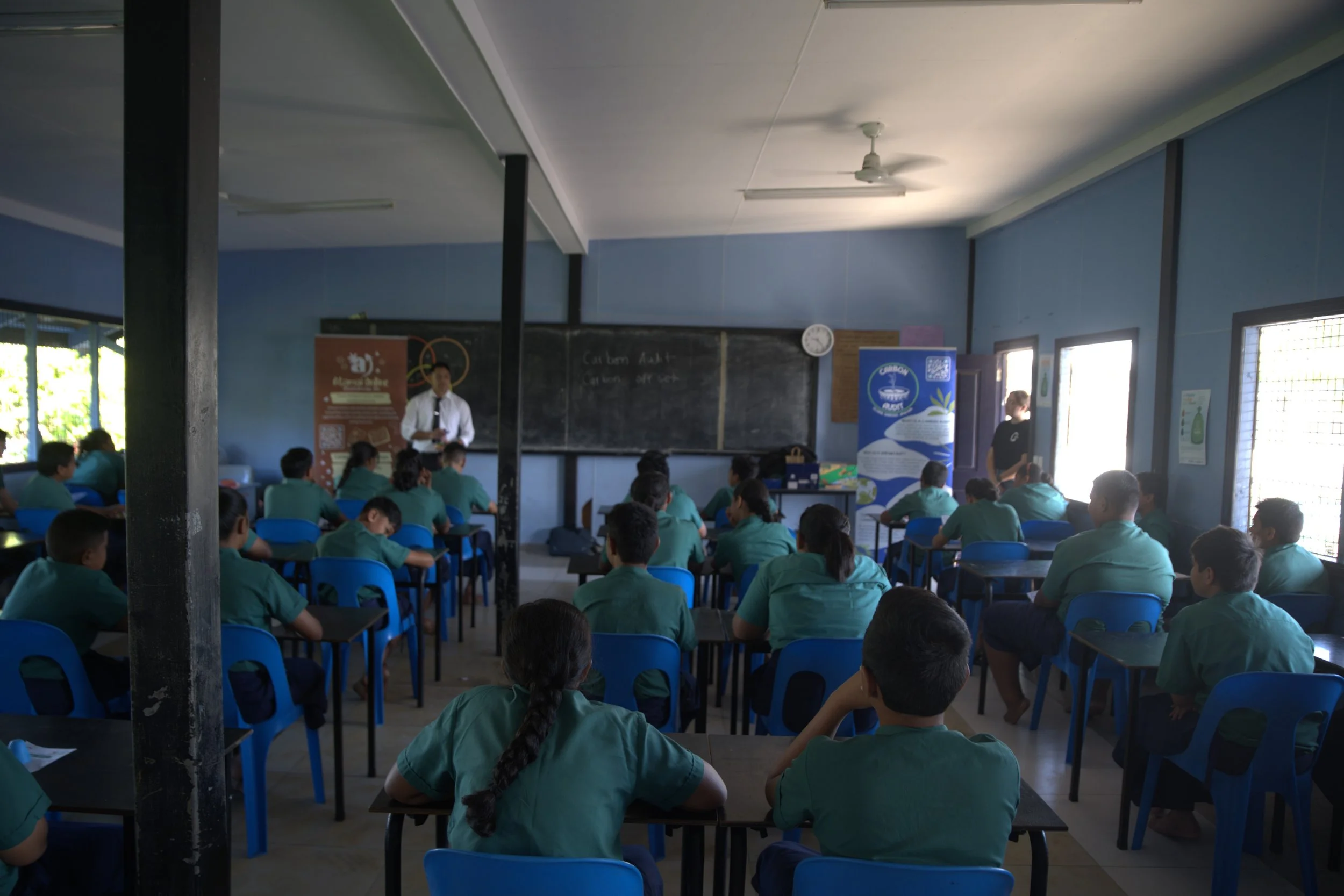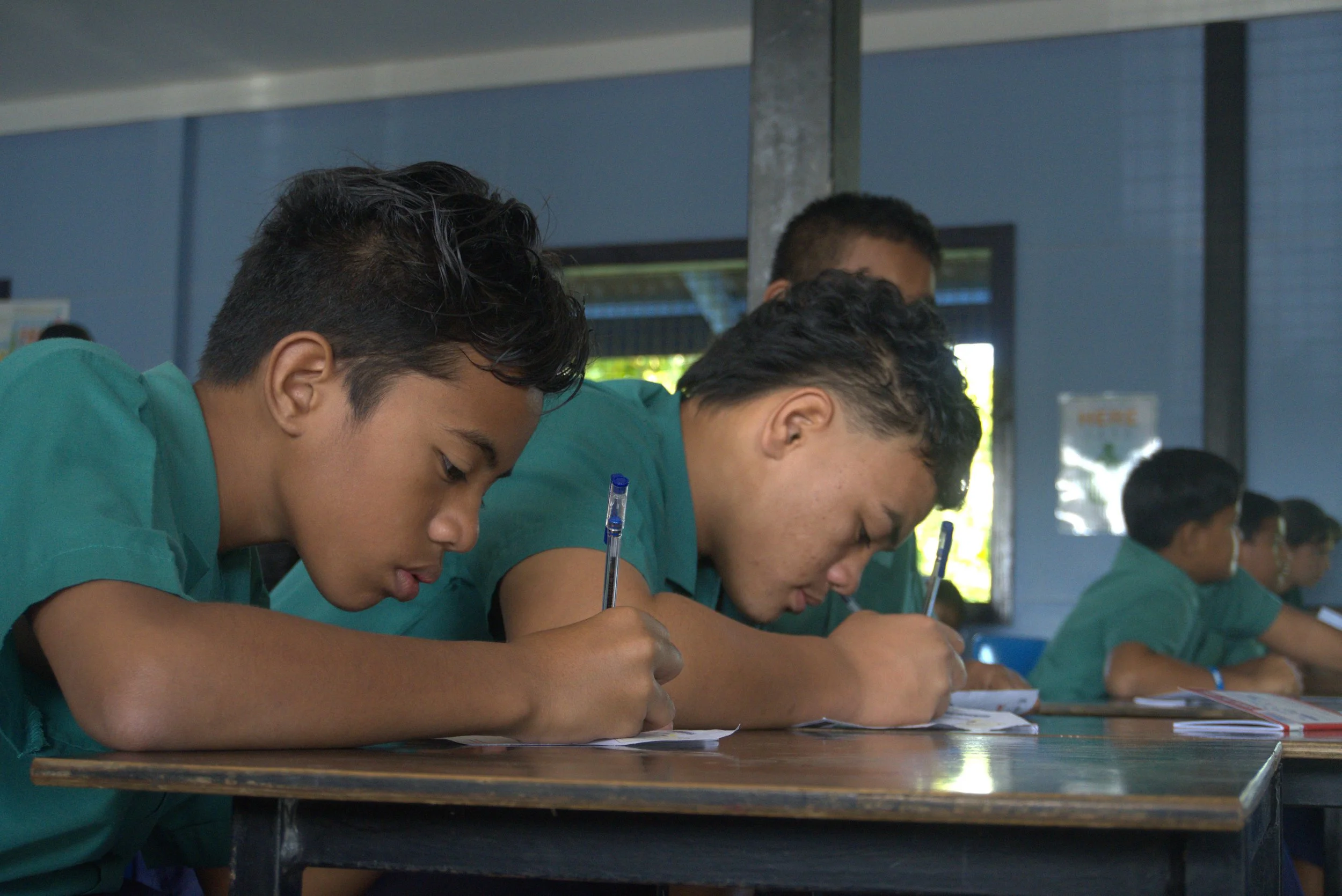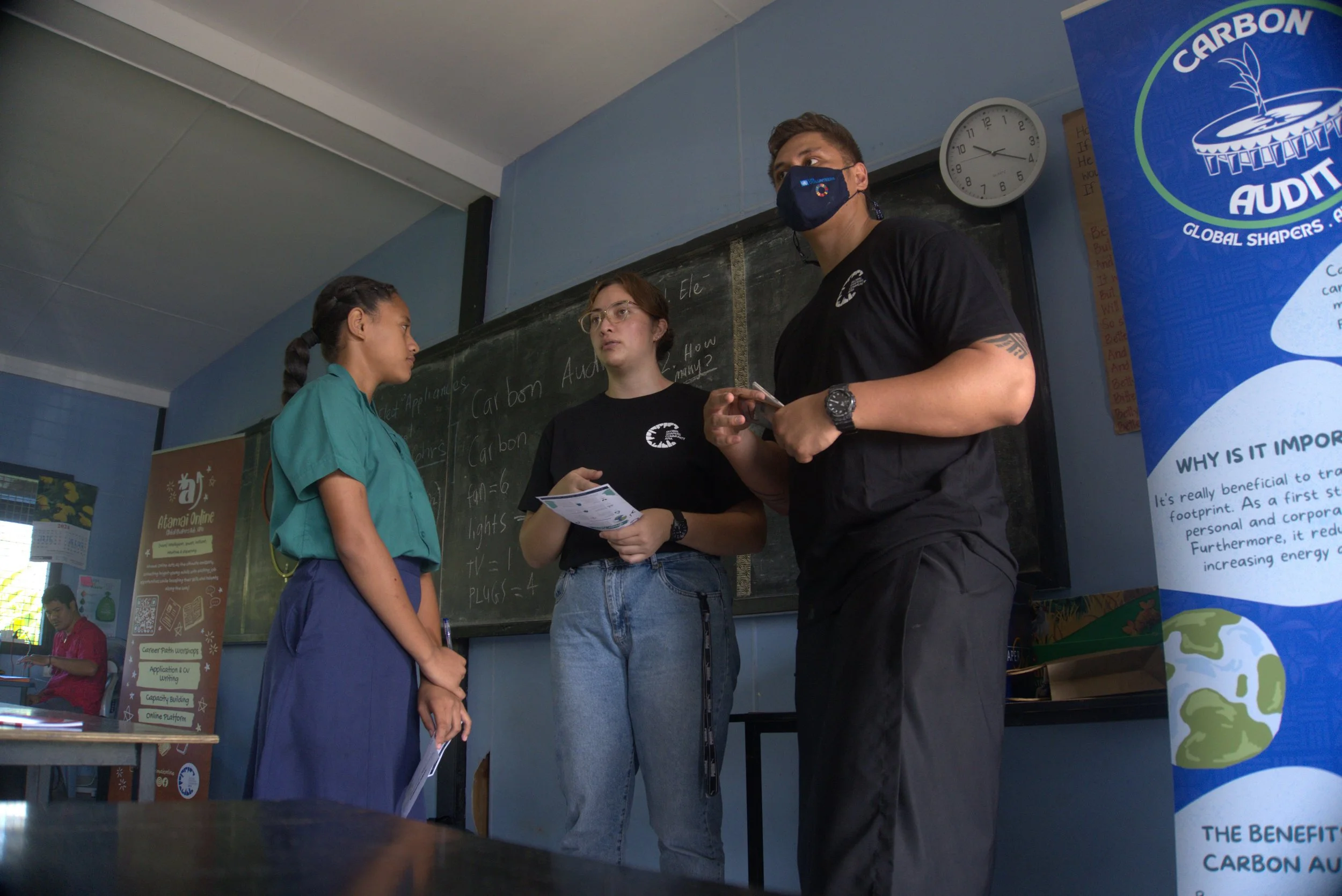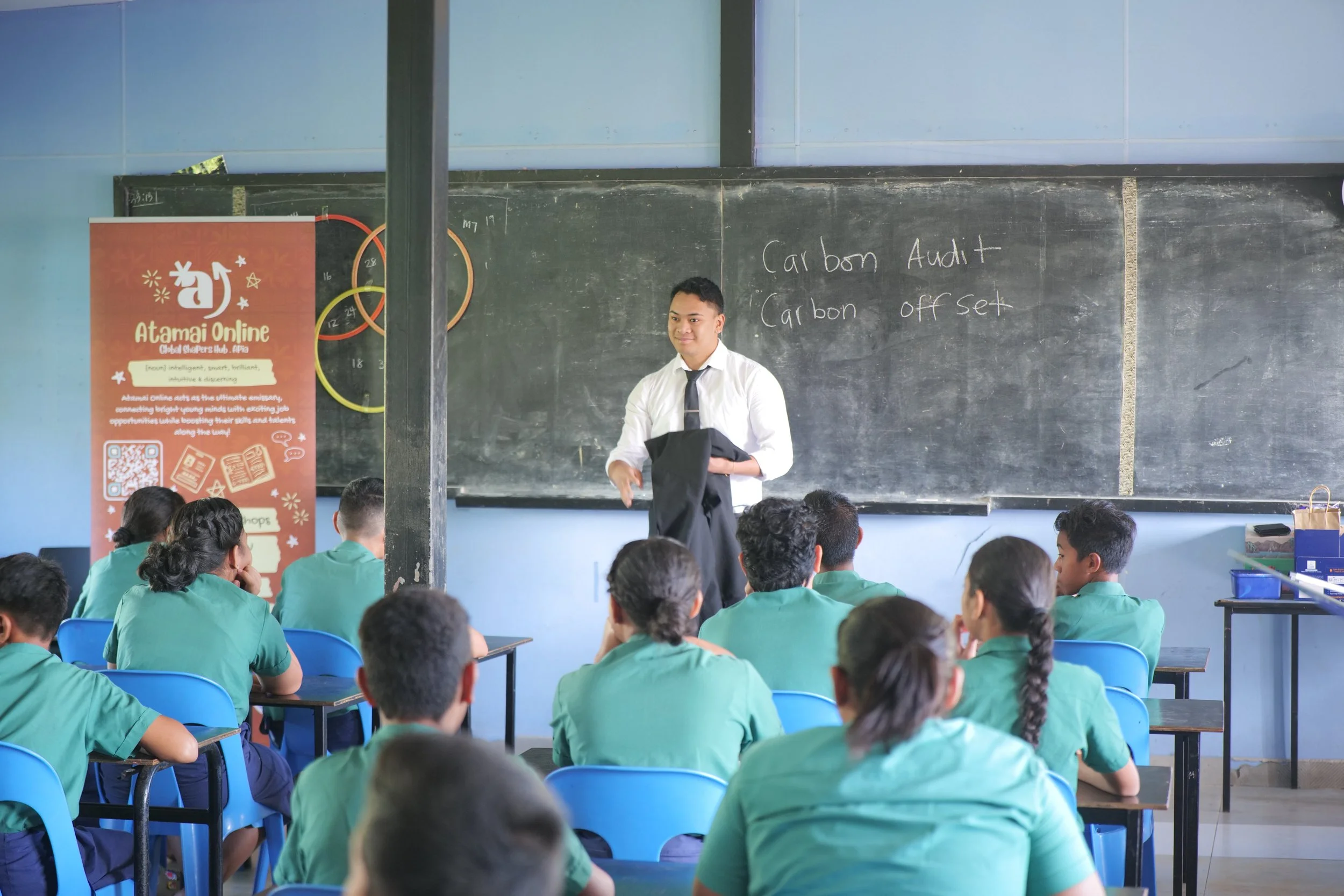
Atamai Sio’siomaga
Atamai Sio’siomaga (Samoan words for Smart / Intelligent and environment. In translation/context, this means “Restoring Joy to the Environment”) aims to prepare Samoa's youth for climate change through education, training, and practical activities like carbon audits, and tree planting. It involves workshops with climate professionals, carbon audits in schools, and a tree planting event to offset emissions. The initiative seeks to empower youth to become changemakers and promote sustainable careers. As part of the Commonwealth Year of the Youth, Global Shapers Apia Hub and CHEC have partnered with the Commonwealth Secretariat who generously provided the funding for this project.
Empowering Youth in Samoa
Atamai Online and Carbon Audit are two ongoing projects with the Global Shapers Apia Hub. As part of Atamai Sio’siomaga, our goal was to combine the educational aspect of Atamai with the environmental and sustainability efforts of Carbon Audit. As a result, we are able to connect with local schools and young communities in order to inspire and guide the next generation of sustainable leaders. These workshops are used to spark ideas of sustainability and educate students on the impact their actions have on the environment. By teaching young people about sustainability, we foster a culture of environmental responsibility and encourage innovative thinking for future challenges of our future leaders. This knowledge equips them to make informed decisions that contribute to a healthier planet and more resilient local economies. Livelihoods are improved by equipping students with the insight and motivation needed to pursue green careers and sustainable business practices. Communities benefit from a reduction in environmental degradation and an increase in eco-friendly initiatives, as it is the children who will foster their local communities into sustainable places. Workshops such as these assist in developing future green leaders.
Students have been equipped with stationery to note down the practices they learnt and the methods of Carbon Audit calculations as well as have been interactively taught how to identify power consuming devices and power points in a room for auditing. They have also been informed of six different methods they can assist in supporting a more sustainable future, as young leaders.
Project Outcomes
The project was able to address the needs of raising awareness of alternative pathways into various climate professions via the Atamai workshop and a simple carbon audit exercise. The GSAH were able to identify if the needs were met by conducting a simple storytelling exercise for each student to highlight some of the new knowledge that was gained throughout this school visit. Additionally, through student participation, the carbon audit exercise was learnt through ‘learning together’ process where the students engaged with each other to identify different appliances that use electricity, the energy consumption (this was estimated and simplified to make the calculations easier), and then finally identifying the total number of trees to offset. A simple step-by-step simplified method to teach students the process, ensured that the students took away key concepts, reasoning, and knowledge to takeback to their own homes, and indirectly teach other people in their own community.
Furthermore, the rigidity of the Samoan education system meant that general career opportunities bottom-up were limited to Science, Commerce, and Arts. Young professionals currently working in various professions, with diverse expertise, and lived experiences were able to share the pathway to get to where they are now. For example, a renewable energy engineer, starting from a science background, progressing through to university, and now currently working as a climate and mitigation negotiator for Samoa. Alternatively, a more creative pathway into videography and photograph for youth and climate related content, which is not in the Samoan curriculum, provided insight into the experiences, success, and hurdles, of that profession. Students directly benefitted from other young professionals (engineers, lawyers, government, private sector), experience and most importantly the opportunity to break away from the rigid Samoan curriculum, into a streamlined long-term pathway for climate-related career opportunities.
-
Upolu Island, Samoa
-
May - August 2024
-
Aims to prepare Samoa's Youth for Climate Change through:
- Education
- Training
- Carbon Audits
- Tree Planting
Atamai Sio'siomaga seeks to empower youth to become changemakers and promote sustainable careers.The project involves workshops with climate professionals, carbon audits in schools, and a tree planting event to offset emissions.
-
The project was (and is) able to meet the aims, objectives, and activities. However, significant challenges were faced, first being the late disbursement of project funds, which the project did not synchronise with the adjusted (due to CHOGM) Samoa school calendar 2024. Secondly, GSAH financial process, which requires 3 quotes from different vendors, then conducting a selection evaluation. Lastly, lead time for the design and purchase of the materials was further delayed due to limited GSAH internal capacity.
However, despite the number of challenges faced, the GSAH were able to deliver on two of the deliverables – Atamai workshop & Carbon audit in schools. The tree planting is set to be delivered after the project deadline.
The Atamai workshops, organized by GSAH, in partnership with the Commonwealth Secretariate and CHEC aim to educate students on climate pathways by connecting them with climate professionals and sharing traditional knowledge via talanoa. The GSAH offers students free online resources for career planning and academic mentorship, encouraging them to pursue fulfilling careers and increase economic opportunities in Samoa. The project, named Atamai, features stories and advice from youth and community leaders to inspire the next generation. An add-on to the Atamai workshops included carbon audits awareness, education, and training tailored to students, is a direct way to highlight and bridge climate related professions and education pathways opportunities.
